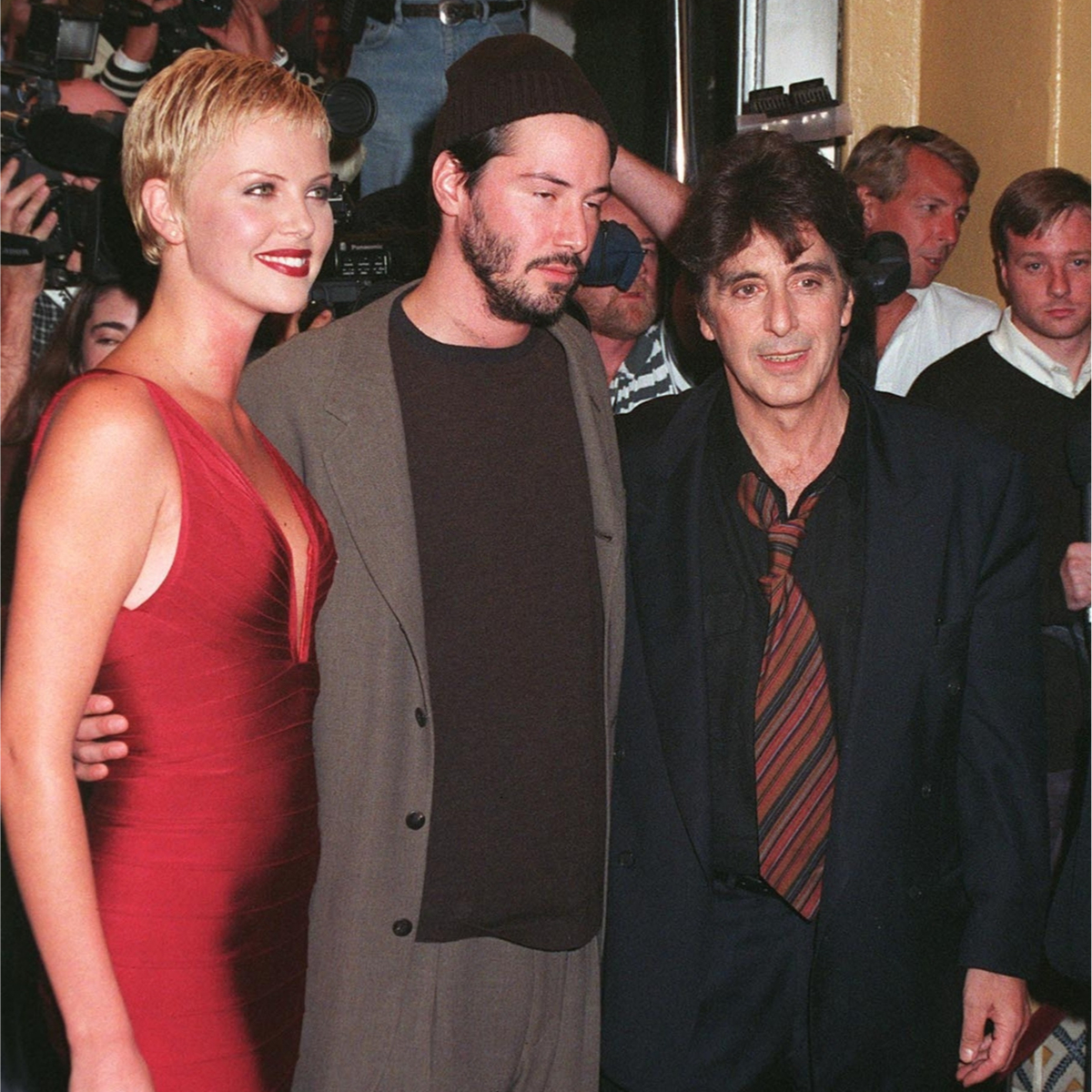 – Al Pacino, Keanu Reeves and Charlize Theron at the premiere of the film The Devil’s Advocate –
– Al Pacino, Keanu Reeves and Charlize Theron at the premiere of the film The Devil’s Advocate –
In the film The Devil’s Advocate, Al Pacino plays a wealthy hotshot New York lawyer called John Milton.
John is actually Satan, the Devil who has come in the form of man to cause havoc.
The story centres on a young lawyer, Kevin Lomax (played by Keanu Reeves) who wants to get to the top of his profession.
John, the Devil, has his eye on him because unbeknown to Kevin he is his son.
So he tempts him away from his small town where he is a successful small-time lawyer earning a decent income with a loving wife.
He wants to bring Kevin over to the dark side and starts to trap him into betraying all his beliefs and principles. He offers him huge amounts of money to work for him, gives him a massive New York apartment, gets women to seduce him and tempts him with power, fame and all sorts.
In the end, Kevin sees through all this an manages to overcome him…or so it seems.
At the end of the film, we see Kevin magically rewound to his life in the small town where he is in court defending someone guilty, and he knows it. This time instead of getting the guy off, he does the right thing and says he can’t represent him despite the chance of him being disbarred.
All is well with the world again.
The Kevin goes to the loo at the courthouse, and there is a journalist in there too. He says how he admires him for doing what he did and would he agree to an interview that would reveal to the world how principled and brave he was.
Kevin agrees and leaves.
Then the journalist magically turns into John Milton, the Devil, and says to the camera:
“Vanity, definitely my favourite sin.”
So the moral of the story is that vanity is ultimately very destructive, and people fall for it over and over again.
Now, this is very applicable to the acting process.
Some actors are admittedly vain and will fess up to it and even wear it as a badge of honour.
Others fall into the trap unwittingly.
They become self-aware and control their expressions and delivery so they can come across in a good light, or so they think.
Some need constant propping up, asking people if they thought they were in a scene.
Others try and control their fellow actors by getting them to do deliver their lines and actions in a certain way, so they can try to control the outcome.
All of this is pure vanity and very destructive to achieving high acting art.
Eugene Vakhtangov, a director, actor and teacher at the Moscow Arts Theatre in the early 1900s, used to carry little cards around with him and when he saw any such behaviour would give the student in question a card which read:
“The muses do not tolerate vanity.”
Which was a very clever observation that focused on the self-interest of the actor. What he was saying is that the more you allow vanity to be present, the less inspired you will become. The word ‘muses’ in the quote really means inspiration.
Inspiration does not tolerate vanity.
Of course, if a student received one of these cards, they fell into line. If they didn’t and repeated this behaviour, they were asked to leave for good. This ensured the right environment for the actors to allow creativity to flow.
Great work will never occur in an atmosphere of vanity or conflict.
Something to think about!
Brian Timoney
The Master Of The Method
[sc name=”Blog_Footer”]

